WEBINAR
Deep Groove Ball Bearing
Learn MoreIn the marine industry, the importance of bearings is crucial. They are widely used in the main propulsion system, rudder, deck machinery, pumps , compressors and other key components of ships. The main role of bearings is to support the rotating parts and reduce the friction in the movement, as to ensure the smooth and efficient operation of mechanical equipment. In the main propulsion system of a ship, bearings assume the key role of transmitting engine power to the propulsion shaft and propeller, and their performance impact the speed and power efficiency of the ship directly.
Bearings used in the marine industry must have a high degree of durability and reliability, as they often operate in extreme marine environments and face challenges such as salt water corrosion, moisture, and temperature variations. As a result, marine bearings are often manufactured with special materials and equipped with efficient sealing systems to extend service life and reduce maintenance requirements.
Bearings used in the marine industry must have a high degree of durability and reliability, as they often operate in extreme marine environments and face challenges such as salt water corrosion, moisture, and temperature variations. As a result, marine bearings are often manufactured with special materials and equipped with efficient sealing systems to extend service life and reduce maintenance requirements.
In conclusion, bearings are vital to the marine industry, they not only to ensure the efficient operation of the ship's mechanical systems, but also play a key role in enhancing the ship's performance, reliability and environmental friendliness.
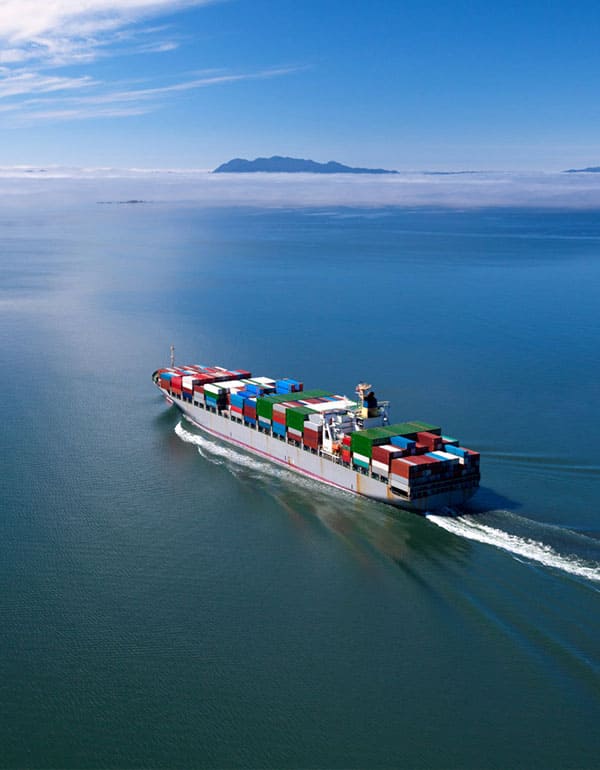
Due to the corrosivity of seawater, ship bearings must have good corrosion resistance. This is usually achieved through the use of stainless steel, copper-based alloys or other special anti-corrosion materials, or through surface treatment techniques to improve the corrosion resistance of bearings.
Ship bearings need to withstand extremely large loads, especially propulsion bearings. They must be able to operate stably under high loads and withstand both axial and radial loads.
Ship bearings may encounter erosion from sand, salt and other abrasives during operation, so they need to have good wear resistance to extend their service life.
Ships operate in different climate conditions, from extreme low temperature environments to hot and humid tropical climates. Bearings must be designed to adapt to these environmental changes and maintain stable performance.
In order to improve the energy efficiency of ships and reduce energy consumption, ship bearings need to have low friction characteristics while ensuring operating efficiency.
Considering the special usage environment and maintenance conditions of the ship, the bearings should be designed to facilitate inspection, maintenance and replacement to reduce downtime.
Due to the diversity of ship sizes, types and uses, bearings often need to be custom designed for specific applications to meet specific performance and environmental requirements.
To prevent seawater intrusion, ship bearing systems are usually equipped with efficient sealing technology to ensure the bearings are dry and reduce the risk of corrosion.
Ships may suffer impact from waves or collisions during operation, so bearings need to have a certain impact resistance to prevent damage.
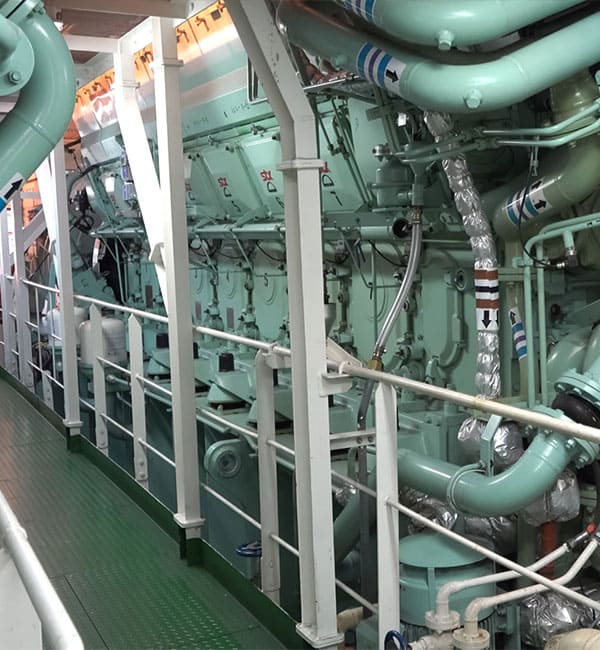
In the marine industry, the main propulsion system is the core of the ship's power and motion, including components such as engines, propeller shafts and propellers. The bearings in the system are ensuring that all rotating parts can operate smoothly and efficiently, thus converting the power generated by the engine into thrust for the ship's advancement. The performance of the bearings has a direct impact on the efficiency of the propulsion system, including its power output, energy utilization and lifespan of operation.
Bearings which used in main propulsion systems must have extremely higher carrying capacity and corrosion resistance to cope with the challenges of marine environments in the long run, including salt water, moisture and varying temperature conditions. These bearings also need to have a high degree of reliability, as any failure could lead to the failure of the ship's power system, which in turn could affect navigational safety.
● Type of Bearing: Deep groove ball bearings, cylindrical roller bearings, thrust bearings.
● Features: High load carrying capacity, high speed resistant, adaptable to marine environment.
● Advantages: Ensure smooth operation of propulsion system as well as increase efficiency and reliability.
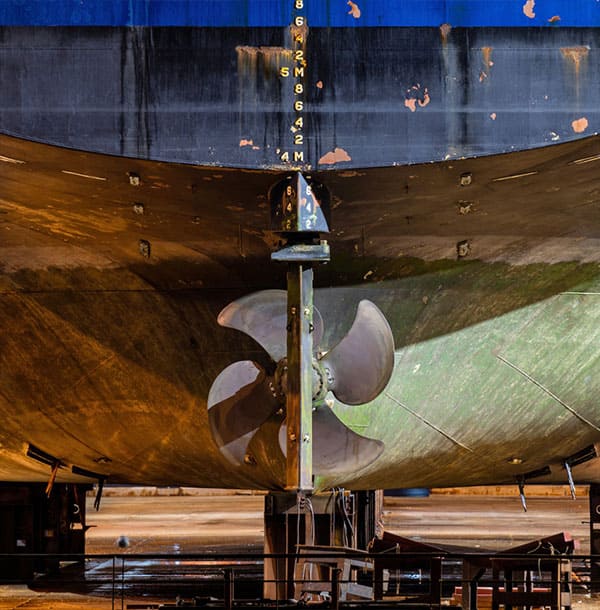
A ship's steering gear, usually referred to as the rudder system, is a key part of controlling the direction of ship. In this system, the role of bearings is to support the rudder blade and connecting parts to ensure its smooth operation. Bearings in the servo system are not only to withstand great pressure from water currents, but also maintain a high degree of accuracy and reliability to achieve precise heading adjustment.
These bearings must have high strength and corrosion resistance for long term operation in seawater environments. High-quality bearings can resist salt, moisture and other aggressive elements of the marine environment effectively, which extending service life and reducing the need of maintenance . In addition, bearings are designed to minimize friction to reduce energy consumption and improve steering efficiency.
● Type of Bearing: Ball bearing, needle roller bearing.
● Features: High strength, corrosion resistance and adaptable to seawater environment.
● Advantages: Ensure the actuator system is sensitive and reliable, improve maneuverability.
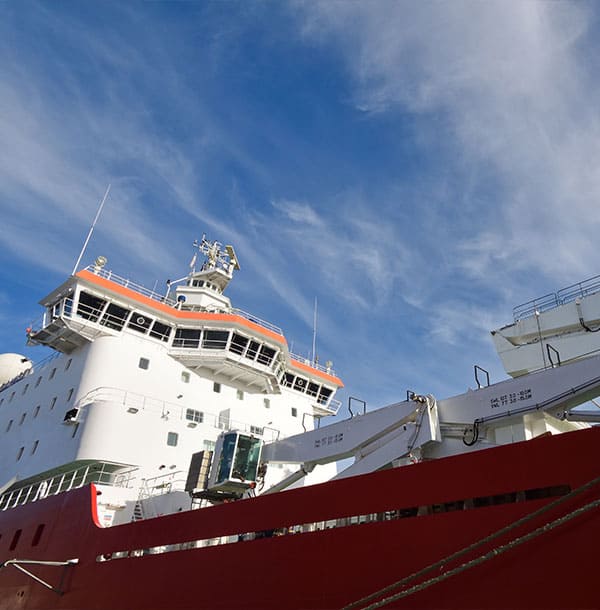
Deck machinery, such as winches, cranes and other cargo handling equipment, is a vital part of ship operations, and they play an important role in a wide range of operations, including loading and unloading of cargo, anchoring and ship maintenance. In these machines, bearings are responsible for ensuring the smooth operation and precise control of various moving parts. Considering that deck machinery often operates under heavy loads and harsh marine environments, bearings must be in high strength, wear and corrosion resistance.
The high quality and durability of ship deck machinery bearings are critical to improving operational efficiency and safety. They reduce the risk of mechanical failure and ensure the smooth handling of cargo, thus enhancing the overall operational efficiency of the ship. At the same time, durable bearings significantly reduce maintenance costs and downtime, which is particularly important for the long-term navigation and economic operation of ships!
● Type of Bearing: ball bearings, needle roller bearings, cylindrical roller bearings.
● Features: Resistant to heavy loads and abrasion.
● Advantages: Improve the operational efficiency and durability of deck machinery and ensure the safety of heavy load handling.
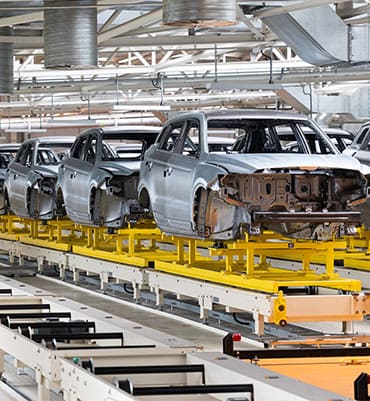
Bearings are widely used in automobile engines, transmission systems, wheels and other critical components to support rotational motion and reduce friction.

In the energy industry, such as wind power, solar power and traditional power plants, bearings are used to support turbines, fans, generators and other equipment.
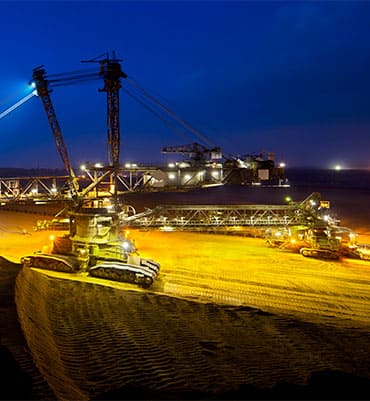
The field of heavy machinery manufacturing such as excavators, loaders, excavators, etc. Using bearings to support and rotate various moving parts.
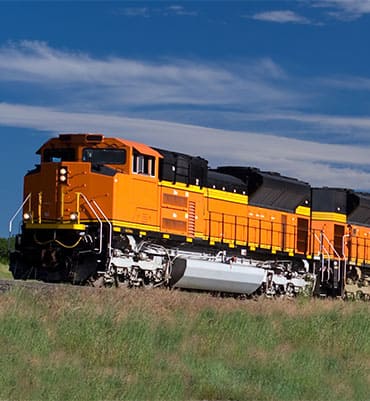
Bearings are used in train and subway systems to support wheels and other moving components.
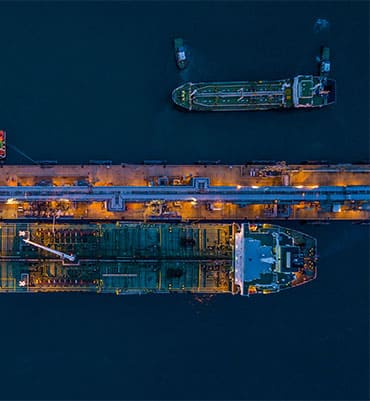
In marine and marine engineering, bearings are used to support ship engines, propellers, transmission systems, etc.

Bearings play a vital role in the design and operation of robotic arms. They not only ensure the smooth and precise movement of the robotic arm, but also have a direct impact on improving the performance, reliability and efficiency of the robotic arm.

Bearings are also often used in electronic equipment, such as computer hard drives, printers, and optical drives.

In medical equipment, such as scanners, X-ray machines, and surgical equipment, bearings are also be required.

The aerospace sector uses bearings to provide support in equipment such as aircraft landing gear, wing controls and satellite panels.
Call for online customer support get FREE BEARING SAMPLE
Online Quotation